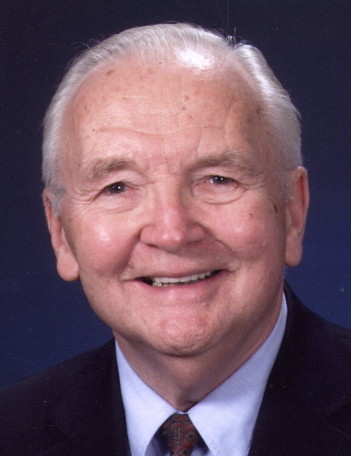You are here
2010 Doggett Prize Winner - Michael J. Crowe
Michael J. Crowe Awarded the 2010 LeRoy E. Doggett Prize
by Sara J. Schechner
 The Historical Astronomy Division of the American Astronomical Society is pleased to announce that Dr. Michael J. Crowe will be the seventh recipient of the LeRoy E. Doggett Prize for Historical Astronomy. The Prize is awarded biennially to an individual whose long-term efforts and lifetime achievements have had significant impact on the field of the history of astronomy. The 2010 LeRoy E. Doggett Prize is presented to Professor Crowe in recognition of his research, teaching, and outreach.
The Historical Astronomy Division of the American Astronomical Society is pleased to announce that Dr. Michael J. Crowe will be the seventh recipient of the LeRoy E. Doggett Prize for Historical Astronomy. The Prize is awarded biennially to an individual whose long-term efforts and lifetime achievements have had significant impact on the field of the history of astronomy. The 2010 LeRoy E. Doggett Prize is presented to Professor Crowe in recognition of his research, teaching, and outreach.
Michael J. Crowe is the Reverend John J. Cavanaugh Professor Emeritus in the Humanities in the Program of Liberal Studies and Graduate Program in History and Philosophy of Science at the University of Notre Dame. Professor Crowe earned a BA in the Program of Liberal Studies and a BS in Science from the University of Notre Dame in 1958. He earned a PhD in the History of Science with minors in Physics and Intellectual History from the University of Wisconsin in 1965.
Professor Crowe's first book, A History of Vector Analysis (University of Notre Dame Press, 1967, revised Dover editions, 1985, 1994), was followed by The Extraterrestrial Life Debate, 1750-1900: The Idea of a Plurality of Worlds from Kant to Lowell (Cambridge University Press, 1986, revised 1988, and Dover, 1999). This magisterial and ambitious work opened up a new and rich field for scholarship and made the history of beliefs in alien life a legitimate field for discussion. It is an indispensable resource that is unlikely to be surpassed for a long time to come. A companion source book, The Extraterrestrial Life Debate: Antiquity to 1915, was published in 2008 (University of Notre Dame Press).
Crowe's other main research interest has been the work of William and John Herschel. Here he has offered new interpretations of their careers. For example, Crowe has made a very strong case for the importance of William Herschel's belief in extraterrestrial life as a guiding principal in his construction and use of large reflecting telescopes. The Calendar of the Correspondence of Sir John Herschel (Cambridge University Press, 1998), edited by Crowe, is an unparalleled resource for Herschel scholarship and many topics in 19th century science.
Professor Crowe has done much to advance the discipline of the history of astronomy through his teaching. He was the founding chair of Notre Dame’s Graduate Program in History and Philosophy of Science and has also served as chair of the university’s Program of Liberal Studies. He has taught for close to 50 years at Notre Dame. His Theories of the World from Antiquity to the Copernican Revolution (Dover, 1990, revised 2001), Modern Theories of the Universe from Herschel to Hubble (Dover, 1994), and Mechanics: From Aristotle to Einstein (Green Lion, 2007) started out as course readers. As published, they have become foundational texts widely used in college courses throughout North America and independently by newcomers to the history of astronomy.
Students and colleagues describe Michael Crowe as compassionate, inspiring, and generous in sharing results. He has been called a cultivator of scholars as well as scholarship.
His welcoming nature is best exemplified by his central role in establishing in 1993 the Biennial Notre Dame Workshops for the History of Astronomy. These workshops have become the premier gathering of historians of astronomy and done much to establish a sense of community among them. Crowe created a space in which scholars of all ages and backgrounds could rub shoulders and share in convivial discussions of history-of-astronomy topics without regard to seniority or hierarchy. Indeed, many historians in the field have attributed their successful launch to the welcome, encouragement, and mutual support that they first received at one of these forums. It has been said that if Mike Crowe had done nothing else for the profession, his organization and hosting of the Notre Dame Workshops is a contribution to the field of history of astronomy that is worthy of recognition by the LeRoy E. Doggett Prize.
